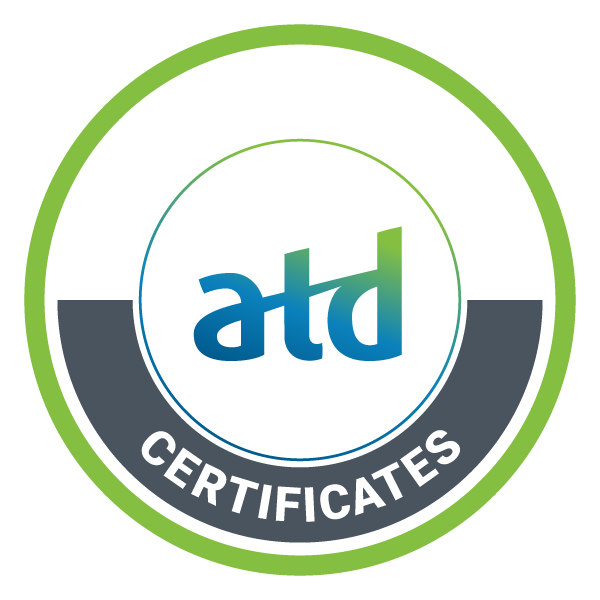Consulting Skills Certificate
Build your credibility as a trusted consultant.
Use a proven model to partner within an organization to drive results and change through talent development solutions.
Face to face
Live Online
Team training
Consulting Skills Certificate: Course Info
Whether you consider yourself a consulting professional or not, chances are you use consulting skills in work projects closely related to your area of expertise. These could include designing a custom training program, or ones not as closely related, such as building and implementing a learning technology system. Regardless of your position, talent professionals must demonstrate strong consulting skills to lead the execution of learning solutions within an organization. You may be a practitioner working inside an organization or an independent management consultant supporting from the outside. Either way, your stakeholders—who your development solutions are intended to support—are your internal clients, and they are looking for your partnership to improve performance and achieve business success.
Practical Skills, Learning Tools, and a Proven Consulting Model
ATD’s certificate for consulting provides you with a five-phase consulting model that you can use to diagnose needs, establish goals, and achieve desired performance outcomes for your learning projects. Rooted in a performance-based approach that prioritizes results over activities, the five phases lay out a practical, step‐by‐step method for the project management of consulting projects, beginning from initial contact through the final step of process improvement.
Strategies to Manage Client Relationships
Together with an expert facilitator and a class of your peers, you will explore how to be a successful business consultant. Collaborating in small groups, you will follow a case study from start to finish, apply skills from each phase of the consulting model to practice consulting scenarios, solve problems, role‐play meetings, try out checklists, and practice making decisions management consultants make every day. You will leave the program prepared to establish strong client partnerships, overcome obstacles and resistance, and build your consulting credibility to influence decision making.
Research-Backed Content: This certificate for consulting is based on the Consulting and Business Partnering Capability of the Talent Development Capability Model™. The concepts covered are reflected in the TDBok™ Guide, Talent Development Body of Knowledge, second edition, the definitive resource for the talent development profession.
Consulting Skills Certificate Brochure
Download the brochure to learn everything you need to know about this course.
Download Now

Format
Face-to-Face
Live Online
Team Training

Roles
Independent Consultant, Instructional Designer, Trainer/Facilitator

Capability Areas
Collaboration and Leadership, Consulting and Business Partnering, Future Readiness, My Career

Level
Capable

Language(s)
English

Credits
APTD 14
CPTD 14
CEU 1.4
HRCI 14
PDC 14

Recognition
ATD Certificate, Digital Badge
Course Topics
FAQs
Facilitators
Dates and Locations
Time Zone: UTC
WHAT OUR PARTICIPANTS ARE SAYING
Testimonials
Credits & Recognition
 ATD Certificate
ATD Certificate Digital Badge
Digital Badge 14 Learning Hours
14 Learning Hours 1.4 CEUs
1.4 CEUs| Additional Credits | Type | Credits | Actions |
|---|---|---|---|
| APTD Credential | Professional Development Hours/Recertification Points | 14 | More Info |
| CPTD Credential | Professional Development Hours/Recertification Points | 14 | More Info |
| HR Certification Institute® | Recertification Credit Hours | 14 | More Info |
| Society for Human Resource Management | Professional Development Credits (PDCs) | 14 | More Info |
Have a Group to Train?
Want to purchase multiple seats or schedule a dedicated team training experience tailored to your organization’s needs? Fill out the form below to schedule a call with an ATD Enterprise Solutions Account Executive to learn more.
